AUCD - Healthcare Transition for ALL: UCEDDs, LENDs, and IDDRCs Taking Action Steps Together
<< Back to Program| Download |
|
|
Sunday, November 11, 2018 9:00 AM - 11:00 AM
Location: Grand North
Session Description
Hosted by AUCD's Disability & Health SIG, this Driving Change Session will share perspectives on the unique roles of UCEDDs, LENDs, and IDDRCs in addressing healthcare transition needs of people with disabilities, and make connections between UCEDDs, LENDs, and IDDRCs.
Participants will be able to:
- Contribute to an action plan to help adult system to receive people with disabilities
- Adapt learnings to address healthcare transition in their individual center
- Support the AUCD Network working together as a network to address challenges of healthcare transition
Panelists
Ilka Riddle, PhD, UCEDD Director, CCHMC
Rodney C. Samaco, PhD, BCM Intellectual and Developmental Disabilities Research Center (IDDRC)
Caroline (Carrie) Coffield, PhD, The Boggs Center on Developmental Disabilities Rutgers Robert Wood Johnson Medical School Department of Pediatrics
Alice Kuo, MD, PhD, MBA, UCLA Internal Medicine and Pediatrics
Moderator
Adriane Griffen, DrPH, MPH, MCHES, Association of University Centers on Disabilities
![]() 1.5 CEUs hours (social work) are available for this session through the University of Minnesota School of Social Work. Learn more, including how to get your certificate.
1.5 CEUs hours (social work) are available for this session through the University of Minnesota School of Social Work. Learn more, including how to get your certificate.
Ilka Riddle, PhD
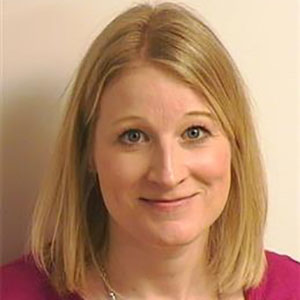 Ilka Riddle, PhD, is an Assistant Professor of Clinical Pediatrics-affiliated and the Director of the University of Cincinnati Center for Excellence in Developmental Disabilities (UC UCEDD) in the Division of Developmental and Behavioral Pediatrics at Cincinnati Children's Hospital Medical Center. She received her PhD in Human Development and Family Studies at the University of Delaware, with a focus on disability and illness and its impact on families. In her role as Director of the Center for Excellence in Developmental Disabilities, she is responsible for providing guidance and leadership to staff and community partners for improving the health and lives of children and adults with disabilities on the local, state and national level, collaborate with internal and external partners, write reports, conduct research and policy work, apply for and secure state and federal funding and expand the impact of her UCEDD and the national network of UCEDDs across the country. Dr. Riddle has over eleven years of experience as the principal investigator and co-investigator on various federally and state funded grants, such as the Centers for Disease Control and Prevention, the Administration on Intellectual and Developmental Disabilities, the Ohio Department of Health and the Ohio Department of Developmental Disabilities, and foundation grants addressing system improvements for children and youth with developmental disabilities and special health care needs; health disparities, health promotion and disease prevention for individuals with disabilities; healthcare transition and inclusion of individuals with disabilities across the lifespan in health care settings and activities. Most recently, Dr. Riddle has been involved in various national efforts and workgroups to improve training of healthcare providers on Developmental Disabilities and develop principles and guidelines for inclusion of individuals with intellectual disabilities in health-related programming, services, training and research. Dr. Riddle is particularly interested in system change activities and the impact of policy on practice.
Ilka Riddle, PhD, is an Assistant Professor of Clinical Pediatrics-affiliated and the Director of the University of Cincinnati Center for Excellence in Developmental Disabilities (UC UCEDD) in the Division of Developmental and Behavioral Pediatrics at Cincinnati Children's Hospital Medical Center. She received her PhD in Human Development and Family Studies at the University of Delaware, with a focus on disability and illness and its impact on families. In her role as Director of the Center for Excellence in Developmental Disabilities, she is responsible for providing guidance and leadership to staff and community partners for improving the health and lives of children and adults with disabilities on the local, state and national level, collaborate with internal and external partners, write reports, conduct research and policy work, apply for and secure state and federal funding and expand the impact of her UCEDD and the national network of UCEDDs across the country. Dr. Riddle has over eleven years of experience as the principal investigator and co-investigator on various federally and state funded grants, such as the Centers for Disease Control and Prevention, the Administration on Intellectual and Developmental Disabilities, the Ohio Department of Health and the Ohio Department of Developmental Disabilities, and foundation grants addressing system improvements for children and youth with developmental disabilities and special health care needs; health disparities, health promotion and disease prevention for individuals with disabilities; healthcare transition and inclusion of individuals with disabilities across the lifespan in health care settings and activities. Most recently, Dr. Riddle has been involved in various national efforts and workgroups to improve training of healthcare providers on Developmental Disabilities and develop principles and guidelines for inclusion of individuals with intellectual disabilities in health-related programming, services, training and research. Dr. Riddle is particularly interested in system change activities and the impact of policy on practice.
Rodney Samaco, PhD
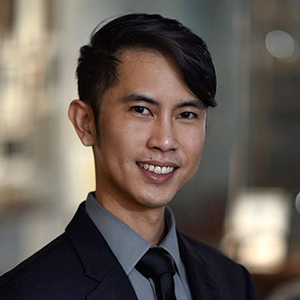 Rodney Samaco, PhD, is an Assistant Professor and the Associate Director at Baylor College of Medicine (BCM) Intellectual and Developmental Disabilities Research Center (IDDRC) in the Department of Molecular and Human Genetics. Dr. Samaco serves as the Director of BCM IDDRC and Texas Children's Hospital Rodent Neurobehavioral Cores, Jan and Dan Duncan Neurological Research Institute. His research seeks to identify and understand the key neuroanatomical and molecular determinants that govern the complexities of behavior, and how perturbations in these effectors can result in clinical manifestations associated with CNS disorders that emerge across the lifespan of people including monogenic neurodevelopmental disorders (Rett syndrome and related MeCP2 disorders, Fragile X syndrome and Tuberous Sclerosis), neuropsychiatric indications (ADHD and schizophrenia) and adult onset neurodegenerative disorders (Parkinson's disease). He is an advocate for "team science," serving the broader scientific community through several leadership positions of NIH-funded endeavors.
Rodney Samaco, PhD, is an Assistant Professor and the Associate Director at Baylor College of Medicine (BCM) Intellectual and Developmental Disabilities Research Center (IDDRC) in the Department of Molecular and Human Genetics. Dr. Samaco serves as the Director of BCM IDDRC and Texas Children's Hospital Rodent Neurobehavioral Cores, Jan and Dan Duncan Neurological Research Institute. His research seeks to identify and understand the key neuroanatomical and molecular determinants that govern the complexities of behavior, and how perturbations in these effectors can result in clinical manifestations associated with CNS disorders that emerge across the lifespan of people including monogenic neurodevelopmental disorders (Rett syndrome and related MeCP2 disorders, Fragile X syndrome and Tuberous Sclerosis), neuropsychiatric indications (ADHD and schizophrenia) and adult onset neurodegenerative disorders (Parkinson's disease). He is an advocate for "team science," serving the broader scientific community through several leadership positions of NIH-funded endeavors.
Caroline (Carrie) Coffield, PhD
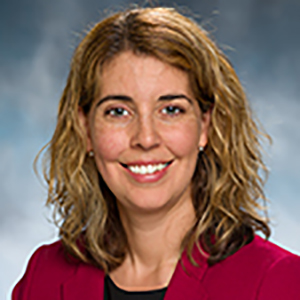 Caroline Coffield, PhD, is an Assistant Professor of Pediatrics and Director of Preservice Training at The Boggs Center on Developmental Disabilities. Dr. Coffield is the Training Director of the New Jersey Leadership Education in Neurodevelopmental Disabilities (NJLEND) Program and coordinates the Seminar on Family Centered Care and Developmental Disabilities, a required component of the pediatric clerkship for all third-year medical students at Rutgers Robert Wood Johnson Medical School. Her research interests include a variety of disability specific topics such as health disparities in diagnosis and access to care for children with Autism Spectrum Disorders and their families, transition to adult healthcare, and impact of education and training about developmental disabilities on future healthcare providers. Dr. Coffield obtained her doctorate in Psychology and was an Interdisciplinary Trainee at The Boggs Center.
Caroline Coffield, PhD, is an Assistant Professor of Pediatrics and Director of Preservice Training at The Boggs Center on Developmental Disabilities. Dr. Coffield is the Training Director of the New Jersey Leadership Education in Neurodevelopmental Disabilities (NJLEND) Program and coordinates the Seminar on Family Centered Care and Developmental Disabilities, a required component of the pediatric clerkship for all third-year medical students at Rutgers Robert Wood Johnson Medical School. Her research interests include a variety of disability specific topics such as health disparities in diagnosis and access to care for children with Autism Spectrum Disorders and their families, transition to adult healthcare, and impact of education and training about developmental disabilities on future healthcare providers. Dr. Coffield obtained her doctorate in Psychology and was an Interdisciplinary Trainee at The Boggs Center.
Alice Kuo, MD, PhD, MBA
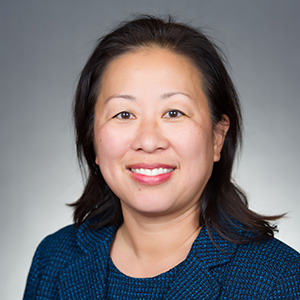 Dr. Alice Kuo is a Professor of Internal Medicine and Pediatrics at the David Geffen School of Medicine at UCLA, and of Health Policy and Management in the Fielding UCLA School of Public Health. She is also Chief of Medicine-Pediatrics at UCLA. Her research interests include access to and delivery of developmental services, cognitive and language development in young minority children, and services for children and adults with autism and other neurodevelopmental disorders. Since 2014, she has been the Director of the Maternal and Child Health Bureau (MCHB)-funded Health Care Transitions Research Network (HCT-RN) for Autism Spectrum Disorder.
Dr. Alice Kuo is a Professor of Internal Medicine and Pediatrics at the David Geffen School of Medicine at UCLA, and of Health Policy and Management in the Fielding UCLA School of Public Health. She is also Chief of Medicine-Pediatrics at UCLA. Her research interests include access to and delivery of developmental services, cognitive and language development in young minority children, and services for children and adults with autism and other neurodevelopmental disorders. Since 2014, she has been the Director of the Maternal and Child Health Bureau (MCHB)-funded Health Care Transitions Research Network (HCT-RN) for Autism Spectrum Disorder.
In addition to her research, Dr. Kuo has been involved in educational programs at several levels, from undergraduate students to post-graduate fellows. Dr. Kuo is the Director of the UCLA Combined Internal Medicine and Pediatrics Residency Program, which she founded in 2003. In 2016, she became the Director of the University of California Leadership Education in Neurodevelopmental Disabilities (UC-LEND) program. At the national level, she has been the chair of the Health Care Transition Committee for the Medicine-Pediatrics Program Directors Association since 2012.
Dr. Kuo received her MD from UCLA, her PhD in Educational Psychology with a focus on Early Childhood and Special Education from the Graduate School of Education and Information Studies at UCLA, and her MBA in Healthcare Administration from the University of Massachusetts Isenberg School of Management.
Adriane Griffen, DrPH, MPH, MCHES
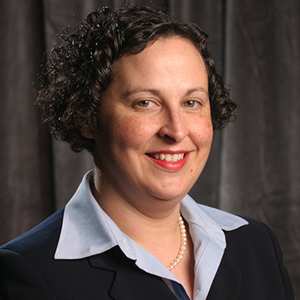 Dr. Adriane Griffen serves as the Senior Director, Public Health and Leadership, at the Association of University Centers on Disabilities (AUCD). She has over 20 years of experience with specialty areas in disability and health, health promotion, social marketing, qualitative research, and health education. Her activities focus on capacity building, systems change to include people with disabilities, and health promotion for people with disabilities across the age span. Dr. Griffen recently completed a Doctor of Public Health in Leadership at the University of Illinois at Chicago, where her dissertation efforts focused on using action research to understand state-level readiness, capacity, and capacity building factors necessary to include people living with a disability in public health programs.
Dr. Adriane Griffen serves as the Senior Director, Public Health and Leadership, at the Association of University Centers on Disabilities (AUCD). She has over 20 years of experience with specialty areas in disability and health, health promotion, social marketing, qualitative research, and health education. Her activities focus on capacity building, systems change to include people with disabilities, and health promotion for people with disabilities across the age span. Dr. Griffen recently completed a Doctor of Public Health in Leadership at the University of Illinois at Chicago, where her dissertation efforts focused on using action research to understand state-level readiness, capacity, and capacity building factors necessary to include people living with a disability in public health programs.
